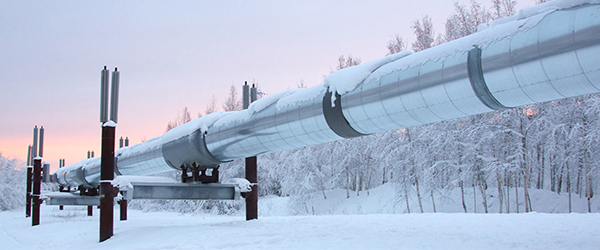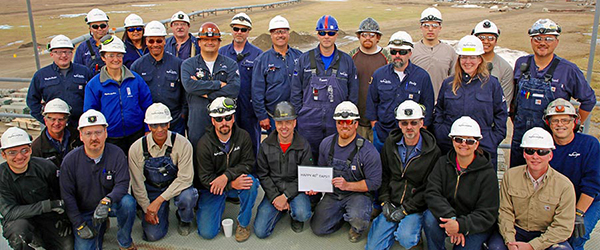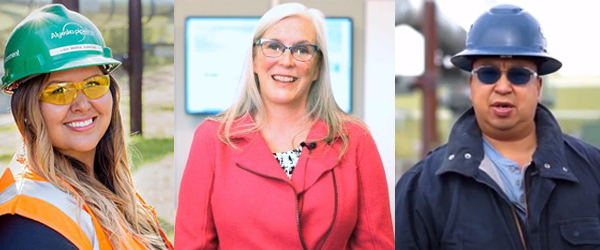1978: JEFF STREIT
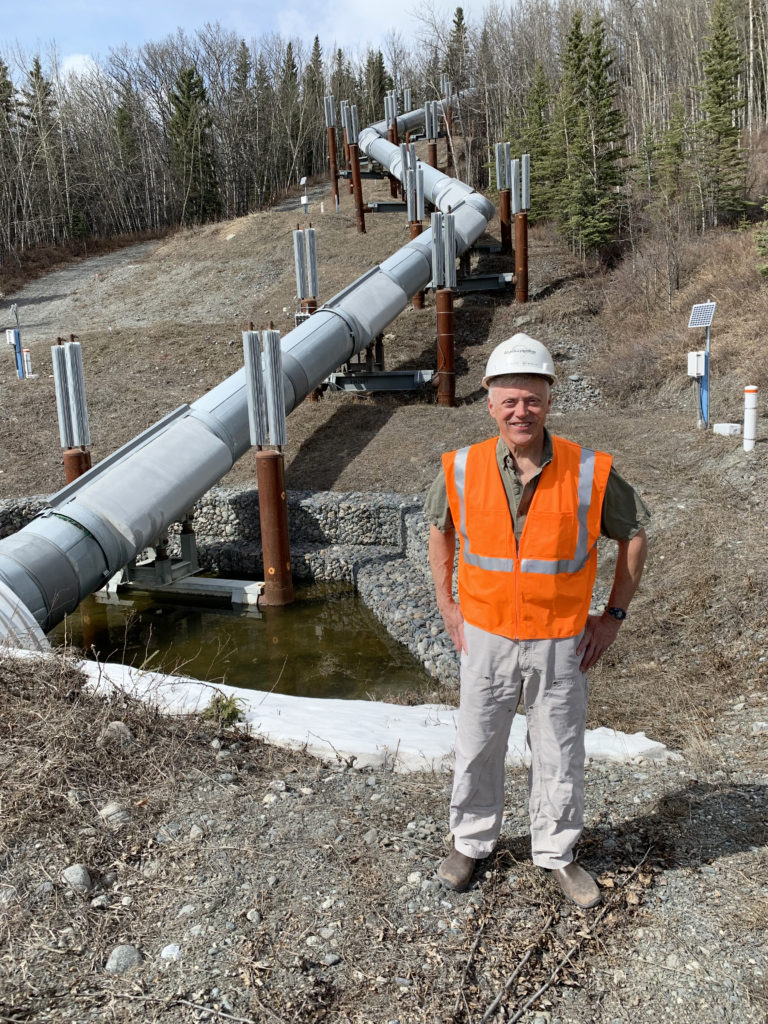
“A journey, never a job.”
 After helping build TAPS from 1974-1977, operating rock trucks, fuel trucks, boom trucks and forklifts, including working on a Hercules aircraft team offloading critical supplies while Wein F-27s were hauling workers in and out nearby, from Galbraith Lake to Coldfoot, Jeff Streit transitioned to removing remnants of that historic construction effort. He demobilized Prospect, Oldman and 5-Mile camps, loading piece by piece onto numerous high deck trailers to be shipped out of state. Jeff even saw one of those Hercules blow up at the Galbraith airport. After crossing the Yukon River for years on a powerful hovercraft barge, he helped load up its dismantled pieces when the bridge was complete.
After helping build TAPS from 1974-1977, operating rock trucks, fuel trucks, boom trucks and forklifts, including working on a Hercules aircraft team offloading critical supplies while Wein F-27s were hauling workers in and out nearby, from Galbraith Lake to Coldfoot, Jeff Streit transitioned to removing remnants of that historic construction effort. He demobilized Prospect, Oldman and 5-Mile camps, loading piece by piece onto numerous high deck trailers to be shipped out of state. Jeff even saw one of those Hercules blow up at the Galbraith airport. After crossing the Yukon River for years on a powerful hovercraft barge, he helped load up its dismantled pieces when the bridge was complete.
Seeing the signs that this phase was finite, Jeff sought a long-term gig on the now-operating pipeline. He followed a lead from a construction buddy about technician openings at Pump Station 8.
“I put in my application, took an aptitude test, and to my surprise got an interview with the station manager,” he said. “They offered me a job. I was excited and accepted, reported to PS8, and took the tour with a senior technician. He used to be a manager at a chemical plant and I thought to myself, ‘I will be lucky to last a week. I don’t know a darn thing about a pump station.’”
Jeff has lasted — more than 48 years on TAPS, in fact. And he knows a whole darn lot about its pump stations, history, people, and culture.
When asked what has kept him on TAPS so long, Jeff replied, “Curiosity, passion, being a student of the pipeline. It has always been a journey and never a job. And never wavering from the mission of doing my best each day to meet the core values of protecting people, the environment, and the TAPS system has kept me focused and energized. TAPS faces new challenges every day; the job is never done to continue learning and understanding the system. The system will always tell you what it needs if you are listening and watchful.”
Jeff is someone who still listens and learns, noting his “knowledge base, which I continue to build on.” His TAPS resume is filled with countless pipeline perspectives and illustrates endless opportunities to train, teach and learn from others. Jeff has worked as a technician at three pump stations; a task force supervisor; a project supervisor; a pump station operations supervisor; a pipeline technician trainer; supervisor of the North and South Districts and the OCC; a process safety advisor; and as pipeline and civil maintenance supervisor at the Glennallen Response Base/RBS, where he’s been the past 14 years.
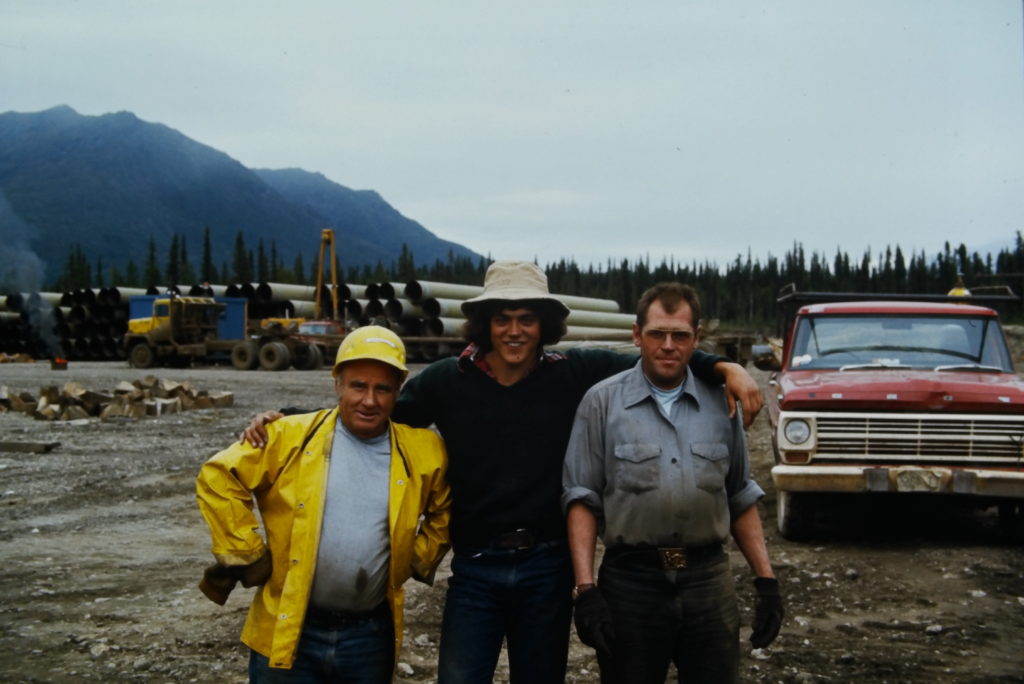
“My best memories are many, but the most powerful and influential are from the people who I have worked with since the construction days, that took a special effort to offer a helping hand to teach, coach, and mentor you through new jobs and experiences, and believed in you,” he said. “Being your ‘wingman’ when things are tough – you don’t forget those people.”
Naturally, Jeff feels an obligation to pass on what he’s learned, which is vast. He’s a mentor and instructor to countless TAPS workers in a variety of specialties: pipeline operations and hydraulics, topping units, ROW orientation, hazards of crude oil, OCC, civil supervising, cold restart system, process safety awareness. It’s his way of continuing the legacy of handing down nearly 50 years of TAPS history and complexities, while also paying respect to those who did the same for him.
“We are all basically the product of thousands of others who have taught and shared knowledge, each generation building on the previous,” he said. “I feel strongly that we all have a responsibility to not just pass the knowledge on, but to continue to build on it.”
Jeff’s TAPS experiences, and his memories of them, are rich and vivid, partly because of his impressive retention, partly because he is so thoughtful with his words, and also because he’s conveniently been in the middle of some of the most significant moments in the pipeline’s history, including many before the pipeline was even operating.
- Arctic sealifts in Prudhoe Bay when the sea ice never melted.
- Mess halls filled with cigarette smoke and laughter.
- Movie theaters packed with workers watching “Jaws” while black bears helped themselves to soda and popcorn.
- Burying the fuel gas pipeline down Toolik Hill in the spring of ’77.
- Lighting the flare at PS1 as it prepared to receive NGLS.
- Hydrotesting the pipeline from Toolik to Atigun Pass during startup.
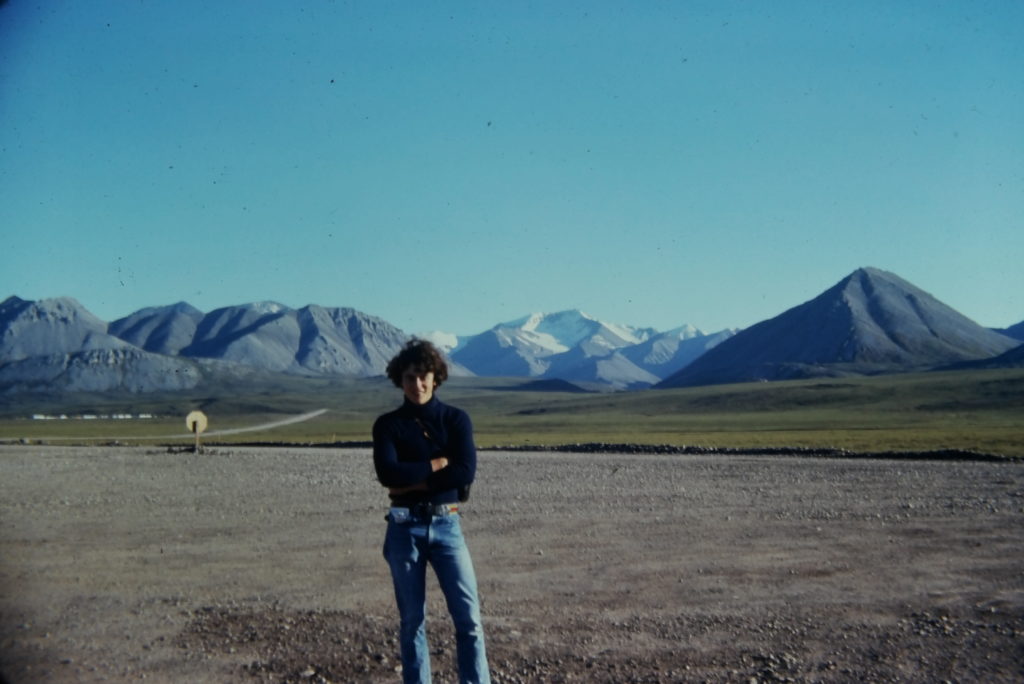
Jeff’s post-construction Alyeska job at Pump Station 8 started shortly after it was at the center of one of the most shocking and tragic events on the TAPS timeline. On July 8, 1977, barely two weeks after startup, an explosion at the new pump station killed one person, injured many, destroyed facilities and spilled oil. Jeff arrived as a new technician a few months later at a newly reconstructed station, just after it came back online. It was a pivotal moment for TAPS, Alyeska and the Owners, and an apprehensive yet exciting time for workers.
Jeff said: “The pipeline was getting back on its feet and things were ramping up, but the people at PS8 knew that our business was hazardous if we didn’t have everything right. There was some healthy fear, but I never sensed that anyone had any doubt that we would be successful. There was this confidence that whatever came up, we would be able to deal with it. We were closely tied with our entire engineering organization in the field and sometimes daily phone conferences with managers, engineers, technical specialists. It was pretty cool, everyone was communicating and sharing thoughts on how to address a problem. I think since the system was so new, whatever happened was accepted and dealt with – no swearing, no anxiety, just the next challenge. You have to understand that early on, there were a lot of things happening on TAPS that were pretty serious. You really did expect the unexpected to happen.”
Many years later, he would recall being part of a select group that represented Alyeska at the opening of the TAPS exhibit in the Smithsonian Institution Museum in Washington, D.C. “That was pretty cool,” he said.
Jeff has witness lots of change, of course, but he also recognizes many things that haven’t changed a bit. The pipeline. The people. The pride.
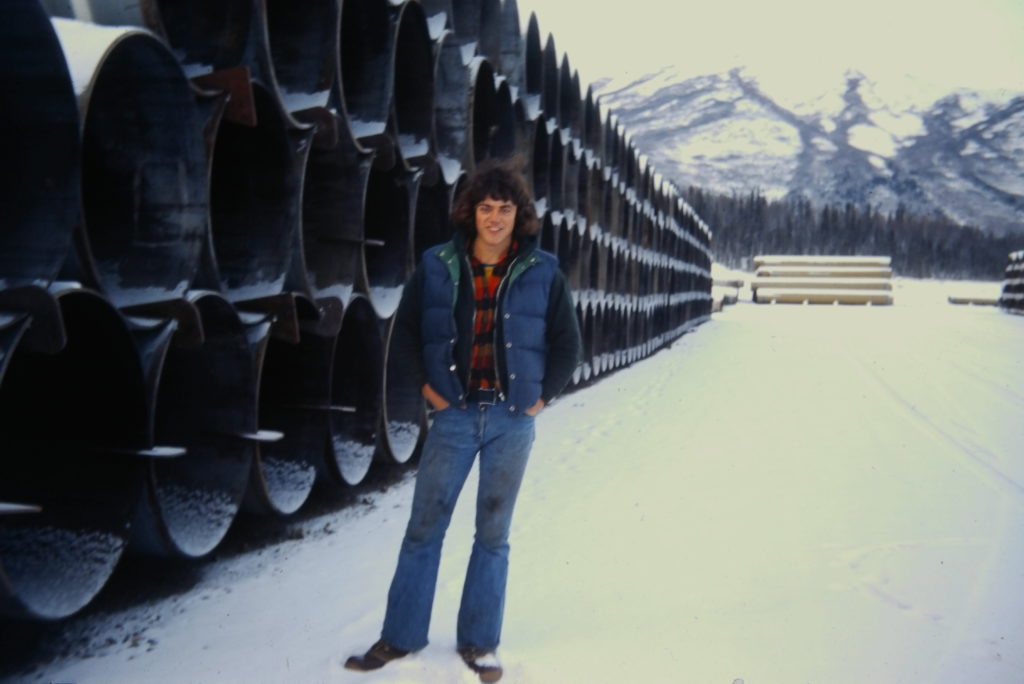
“We have always been upgrading, adjusting, modifying and installing enhanced monitoring, detection, surveillance, equipment and controls,” he said. “But the pipeline itself is still the same pipeline that was built in the ‘70s, still doing battle with the geological and meteorological forces. Atigun Pass and Thompson Pass are at the same elevation as we started.”
Not surprisingly, Jeff’s vision of the future of TAPS are optimistic, even echoing his nearly 50 years of experiences.
“It is a daunting challenge if you really think about it – every square inch of the TAPS pipeline system has to be intact to move one drop of oil,” he said. “Maintaining system integrity will continue to be a number one priority. Without it, you cannot protect people or the environment – or move oil.”
He added, “I am very confident that TAPS will continue building on what others have achieved and continue to be a recognized leader in the pipeline industry. There will be ongoing challenges and new ones as the system ages and the application of new technology will have its growing pains. I’ve had the opportunity in the recent past to teach some of our new hires and interact with many in different aspects of the job. I have been very impressed with the quality and the knowledge of the people we are hiring.”
